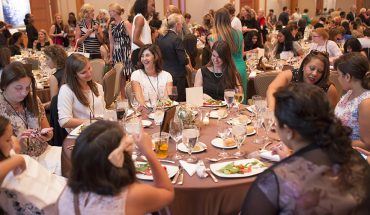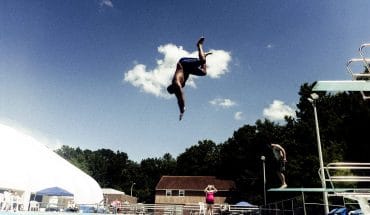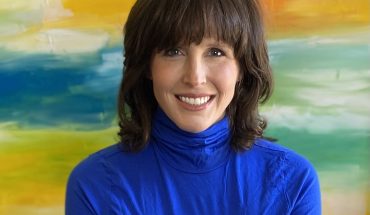by Liza Roberts
Raleighites are a worldly bunch, venturing frequently to distant places for work and for pleasure. But the group of travelers we most wanted to profile for this travel issue take themselves far from home in order to do good for others. Because doctors are often on the front lines of this kind of work, we wanted to tell their stories.
It wasn’t hard to find them. In fact, the difficulty was in narrowing them down – because the number of Raleigh doctors who volunteer their medical expertise abroad is extraordinary. The doctors profiled here are a small fraction of this exemplary, altruistic population, chosen to represent the local spectrum of doctors who go, and the places where they’re making an impact.
We spoke with several who have taken their particular specialties to underserved people in Africa, Central America, Asia, and Eastern Europe. They have performed life-saving operations and fixed congenital deformities. They have pulled teeth, treated malaria, removed cancer, stopped pain. They have brought knowledge, equipment, and training to their fellow doctors, mentored them, and made a lasting difference. They have saved lives and brought hope.
Dr. Robert Littleton, Rex Hospital OB-GYN ~ Zambia
Dr. Robert Littleton has been delivering babies for 30 years at Rex Hospital. “Now I’m delivering babies from the babies I’ve delivered,” he says. When his son and daughter-in-law adopted two children of their own from Uganda, Littleton was inspired to take his medical expertise to Africa to help children who needed it there.
Through his church, Hayes Barton United Methodist, the former Rex medical staff president traveled in 2009 to the Misisi Compound, a shanty town of 90,000 near Lusaka, Zambia, considered one of the worst slums in Sub-Saharan Africa. He borrowed a handbook from a colleague to bone up on his pediatrics before he went, and treated hundreds of children – and adults – with ear infections, scalp infections, and malaria. “Just about everyone had malaria,” he says.
At an orphanage farther south, he treated children whose medical needs were great, and whose only drinking water came from a polluted creek. It was circumstances like those that inspired his son and daughter-in-law, Scott and Erin Littleton, to create the Mighty River Project, a nonprofit to help Ugandan mothers support their families so that they’re able to care for and keep their children.
Dr. Littleton says he’s inspired by their example and grateful for the work he did in Zambia. “I felt a calling to do that,” he says. “It was fulfilling to be able to give back to Africa since Africa had given me my first grandkids.” He’d like to go back, he says, to perform vaginal fistula surgery. Fistulas, the result of protracted labor without medical attention, affect as many as 1 million women in Sub-Saharan Africa and Southeast Asia, according to the Fistula Foundation. The condition creates incontenance and forces women into isolation, but due to lack of resources and expertise, fewer than 20,000 surgeries are performed to correct it every year.
“It’s the kind of surgical procedure that can change women’s lives,” Littleton says.

Dr. Sullivan and Dr. Udekwu with eight graduates of the mentorship program in Leon, Nicaragua. Photo courtesy of William Sullivan and Pascal Udekwu
Dr. William Sullivan and Dr. Pascal Udekwu, Wake Med Surgeons ~ Nicaragua
WakeMed surgeon Dr. William Sullivan first traveled to Nicaragua in 1992 to share his medical care and knowledge with doctors and patients there. He performed appendectomies and hernia, gall bladder, thyroid, and chest operations, and trained local doctors on the latest techniques.
Sullivan saw that the need in Nicaragua was great, but also that the country’s doctors were talented. “They are very well-trained, but the things they have to work with are limited.” And so he was inspired to return – and has biannually ever since – bringing with him not just medical equipment, fellow WakeMed doctors, and knowledge, but years of sustained mentorship.
“We’re not just there to do operations and leave them,” says fellow WakeMed surgeon Dr. Pascal Udekwu, who has joined Sullivan on the Nicaragua trips since 1994. “It is a bi-directional educational exchange.”
‘Bi-directional’ not only because Sullivan, Udekwu, and other WakeMed doctors have learned from their Nicaraguan counterparts, but also because under Sullivan’s sponsorship, those same Nicaraguan doctors have traveled in this direction, too. Over the last 24 years, Sullivan has funded the expenses for more than 80 Nicaraguan physicians to travel and stay in Raleigh for a month at a time, learning alongside him and other WakeMed doctors. “Hopefully they develop some ambitions to improve patient care” in their home hospital, Sullivan says. In fact, the program has made such an impact that Udekwu is now working to create a nonprofit to run and fund it in perpetuity.
Sullivan and Udekwu say they’ve also learned important lessons from their Nicaraguan counterparts. “I’ve learned to be less resource-intense,” Udekwu says, pointing to the often-excessive use of narcotic painkillers for post-surgical patients in the U.S. In Nicaragua, he says, patients are typically discharged with over-the-counter painkillers. “There are wide sociocultural variations in the resilience of the people and their ability to function under adverse circumstances,” he says. “We get reminded of how resource-intense our care is here, and how that might not always be necessary.”
Sullivan has found the character of the Nicaraguan patients he has treated to be instructive and impressive. “They simply don’t complain,” he says. “They seem to exude happiness.” And their doctors, he says, are resourceful in ways American doctors don’t have to be. “Materials and instruments are in short supply, and they work around it,” he says. “They figure out a way to get it done.”
Learning from their example has fueled his motivation, Sullivan says, to focus on what matters most, which are the things that brought him to the field in the first place. He says his volunteer work “is done on the basis of humanism, which is the reason many people enter medicine.” His religion, too, informs Sullivan’s “injunction to do for our neighbors in need.”
Udekwu echoes his mentor, and says that same spirit informs the work both surgeons perform at WakeMed, where he says doctors “with the highest ethical and moral standards” are required to “treat all patients with the highest level of humanism, dignity, and respect” regardless of their ability to pay.
Dr. Randy Macon, Orthodontist ~ Belize; Costa Rica; Haiti; Dominican Republic; Ukraine
Dr. Randy Macon took his first medical mission trip to the Dominican Republic with his church, Trinity Baptist, 12 years ago, and has traveled every year since to bring dental care to people who don’t have it in Haiti, Belize, Costa Rica, and Ukraine. “I felt this tug on my life to share the gifts He has given me,” Macon says. “It was a distinct feeling. An audible voice said to me: I’ve given you a lot of skills, and it’s time for you to use them. I knew exactly what I was supposed to do.”
Everywhere Macon has gone in the developing world, he says the circumstances are similar: People don’t have the necessary resources or transportation to get the care they need. “Dental pain is intense. It’s very intense. So if you have an opportunity to help people with that, it’s very rewarding.” Macon says he treated a minister of music at a church in Ukraine last year who had had a toothache for seven years, and hadn’t been able to sing as a result. “We set up our chair on Saturday morning, and on Sunday morning, he was singing.”
A practicing orthodontist in Raleigh, Macon hadn’t performed basic dental care in many years when he took his first medical mission trip, but he quickly re-learned what he needed to do, and without a lot of equipment. When it came time to pull a tooth, he put a couple of rocks under the rockers of a rocking chair, tipped the patient back, and had someone point a flashlight (shown above). That and a dose of anesthetic got the job done.
One of the biggest challenges, he says, is getting supplies in, especially anesthetic. Without running water or electricity, sanitization is also a struggle, but not impossible. “We do the best we can.”
He does the same thing closer to home, too. “You don’t have to get on a plane.” About six times a year, Macon volunteers on a Baptist church-sponsored dental bus that travels to underserved North Carolina populations, including those at the Raleigh Rescue Mission and the State Fair, where he treats fair workers. “They’re on the road 10 months out of the year, and they say this doesn’t happen anywhere else,” he says. “The need is huge. And this is what we’re supposed to do.”
Dr. George Edwards Jr. , Hand Surgeon ~ Nicaragua
After Hurricane Mitch devastated Nicaragua in the last weeks of 1998, international relief workers flooded in, including a group from White Memorial Presbyterian Church. Among them was hand surgeon Dr. George Edwards Jr., co-founder of the Raleigh Hand Center. Since 2000, Edwards has been back to León, Nicaragua every year with a medical group he helped to found that provides ongoing care for patients they’ve come to know well and training for local doctors they’ve mentored.
When he first arrived, Edwards was the local hospital’s first hand surgeon. “I was seeing more congenital hand deformities than I’ve ever seen in my life,” he says. Most were children. He was amazed that the limited equipment he brought with him was sufficient to do everything he needed to do to, like re-build tendons and separate fused fingers.
“The first few years, it (was) euphoric,” he says, “you’re doing all of these great things, people are so grateful. Then you realize you need to make it more sustainable with the idea of making them more independent. And then you realize it’s about politics.”
Cooperative Orthopedics between America and Nicaragua is the group he founded with fellow Raleigh doctors Robert Caudle, Jeff Kobs, and Ralph Gertsch in an effort to make lasting change. The group has helped build a teaching facility at Rosales Hospital in León; overhauled the hospital’s fracture surgery equipment; and sends a group of 4 to 20 volunteers (most from Raleigh) to treat, teach, and provide non-medical care like carpentry and tutoring every quarter.
“Our mission is to train the orthopedic and anesthesia residents and faculty, and to perform complex cases that would otherwise go untreated,” Edwards says. “Our goal is not to march in and march out, but to leave enough basic equipment and to teach the staff to become more and more independent each year.”
Because he returns every year, Edwards has developed long-term relationships with many doctors and patients. Several years ago, he says, an 11-year-old boy named Wilfredo rode a horse and bus for several hours to seek treatment for the fingers on both hands that had been fully webbed from birth. Edwards was able to heal both hands over the course of several operations (above), and Wilfredo, now 18, is able to work and live a full life.
“That’s the satisfaction of seeing the long-term impact,” Edwards says. The work he has done to help people like Wilfredo and to train Nicaraguan doctors has been some of the most meaningful work he has ever done, he says. “It certainly gives a different perspective on life and medicine in general,” he says. “It also makes me want to do more for people, not just in Nicaragua but for some of the poor people in this country.”
Dr. Scott Garrison, Anesthesiologist ~ Mongolia
“Once you go, you just want to go back,” says Dr. Scott Garrison, a Raleigh anesthesiologist affiliated with Rex, Duke Raleigh, and WakeMed hospitals who has traveled to Ulan Bator, Mongolia for two-week medical missions three times in the last eight years. “I think part of it is that the people are just lovely. You develop relationships when you’re there, and you think: I’d truly like to go back and see those people, because I’m pretty sure they’re not coming to North Carolina.”
Some of those friends he goes back to see are patients, and some are doctors. Garrison has lectured to doctors and medical students at the Ulan Bator cancer hospital on cancer pain and anesthetic in diagnosis and treatment of cancer, and has treated scores of patients.
“I don’t think of it as unselfish, I think I get more out of it than anyone else.”
One particularly memorable patient was the father of an Ulan Bator anesthesiologist, a one-legged goat herder who lived in a yurt an hour outside the capital city. He was suffering from “phantom limb” pain in his amputated leg, and asked Garrison to help. The doctor realized the man needed a sympathetic nerve block, a procedure Garrison hadn’t performed in a dozen years, and lacked the proper equipment to execute. But he also knew that he was the man’s best chance for relief – and he was leaving the next day. So he pulled out his phone card and called a colleague in the States, hoping he’d reach him despite the 13-hour time difference – because he needed a refresher.
Amazingly, Garrison got through to the colleague, went over the steps, returned to the hospital and foraged for materials, begged his way into a cardiac catheterization lab that had an X-ray machine vaguely similar to the kind he needed, and got to work (above). Instead of the fine-tuned probes that he would have used in the States to indicate the rise in temperature to show that the sympathetic nerves had been reached, Garrison had his palm.
“I’ve got my hand on his caboose,” he says, “and I think, ‘am I feeling his butt warming up, or am I just nervous?’ And he leans over and says (to a nurse) that his leg feels hot. That meant it worked! It was cool … it’s amazing what you’ll do in a country with no malpractice lawyers.”
Garrison says he’d love to go back to Ulan Bator for a fourth time, but he might consider a medical mission in Rwanda, a city where his church, Church of the Apostles, has a sister parish.
Dr. Fernando Puente, Dermatologist ~ Costa Rica; South Africa
A medical mission to Costa Rica with the Lutheran church five years ago helped inspire Raleigh dermatologist Dr. Fernando Puente to join Doctors Without Borders, the international medical relief organization, and it also helped inspire his son Alex, who accompanied him, to study medicine.
It wasn’t the first time Puente had contributed to the needs of the developing world. For many years, he and his wife Carol have competed in the Comrades ultramarathon in Durban, South Africa, and have brought donations and medical care to the children of the Ethembeni School for children with disabilitites there. (Fleet Feet, the local running store chain, is also a big supporter of the school.) This month, Puente is headed back to Ethembeni again.
Donating his medical care to people who need it “is almost like my calling,” Puente says. “I really need to share my expertise with these people who don’t have a chance.”
On the Costa Rica mission, Puente, who grew up in Guatemala and speaks Spanish, treated skin cancer, ulcers, excema, and other skin conditions. He was particularly moved by the plight of women whose husbands, Puente says, locked them inside their houses when they went to work every day, requiring the women to sneak out and walk miles in order to reach his clinic.
“The main thing I got out of this trip is how grateful these patients are,” he says. “It’s such a humbling experience. And it reminded me how close these families are, how nurturing, and how kind.”
Puente says he’s eager to donate his medical expertise to underserved North Carolinians, and also to travel with Doctors Without Borders – so far, he has been constrained by its minimum 6-month commitment, because his busy private practice demands his time. “There is so much we all can do,” he says.
“Unfortunately, life gets in the way.”













